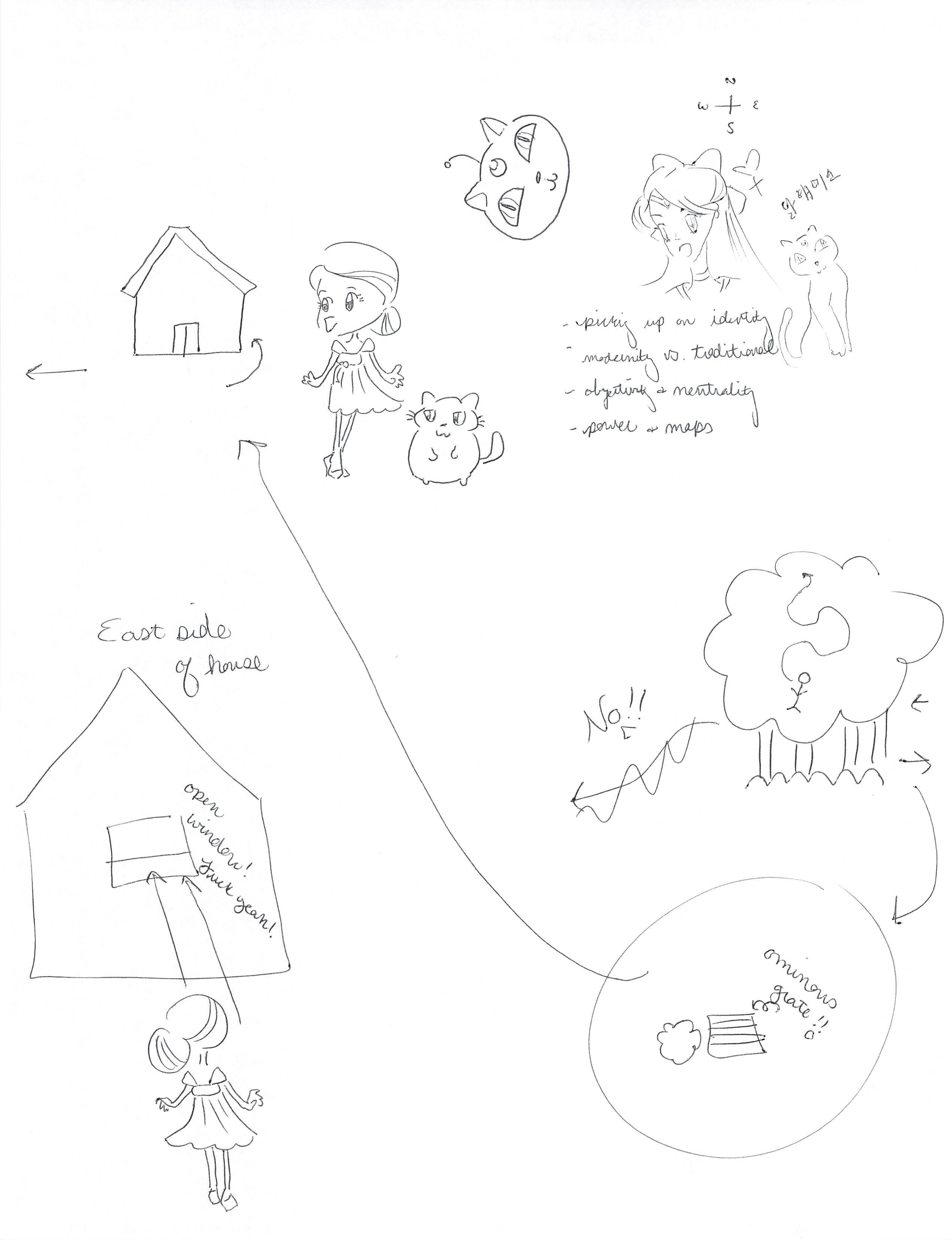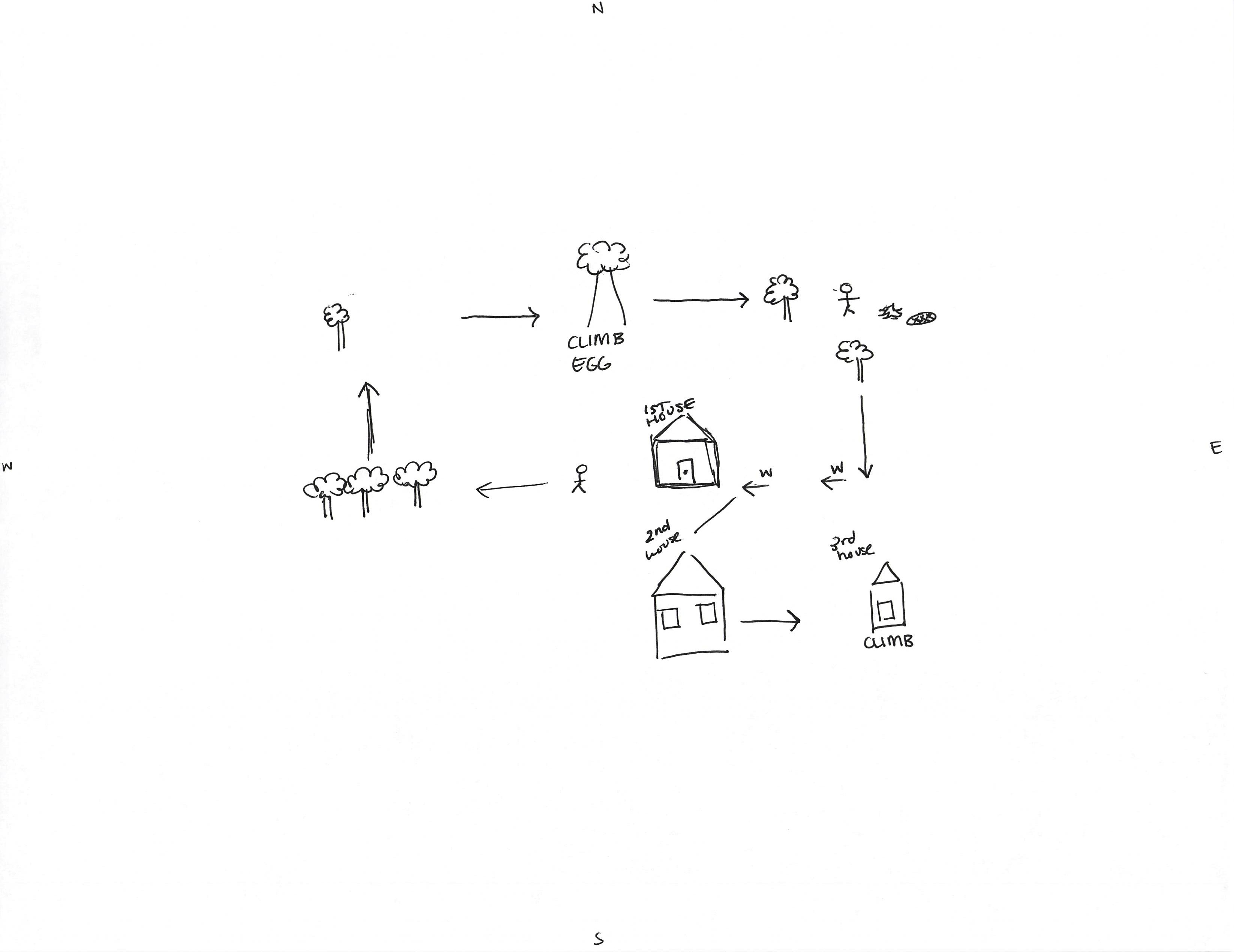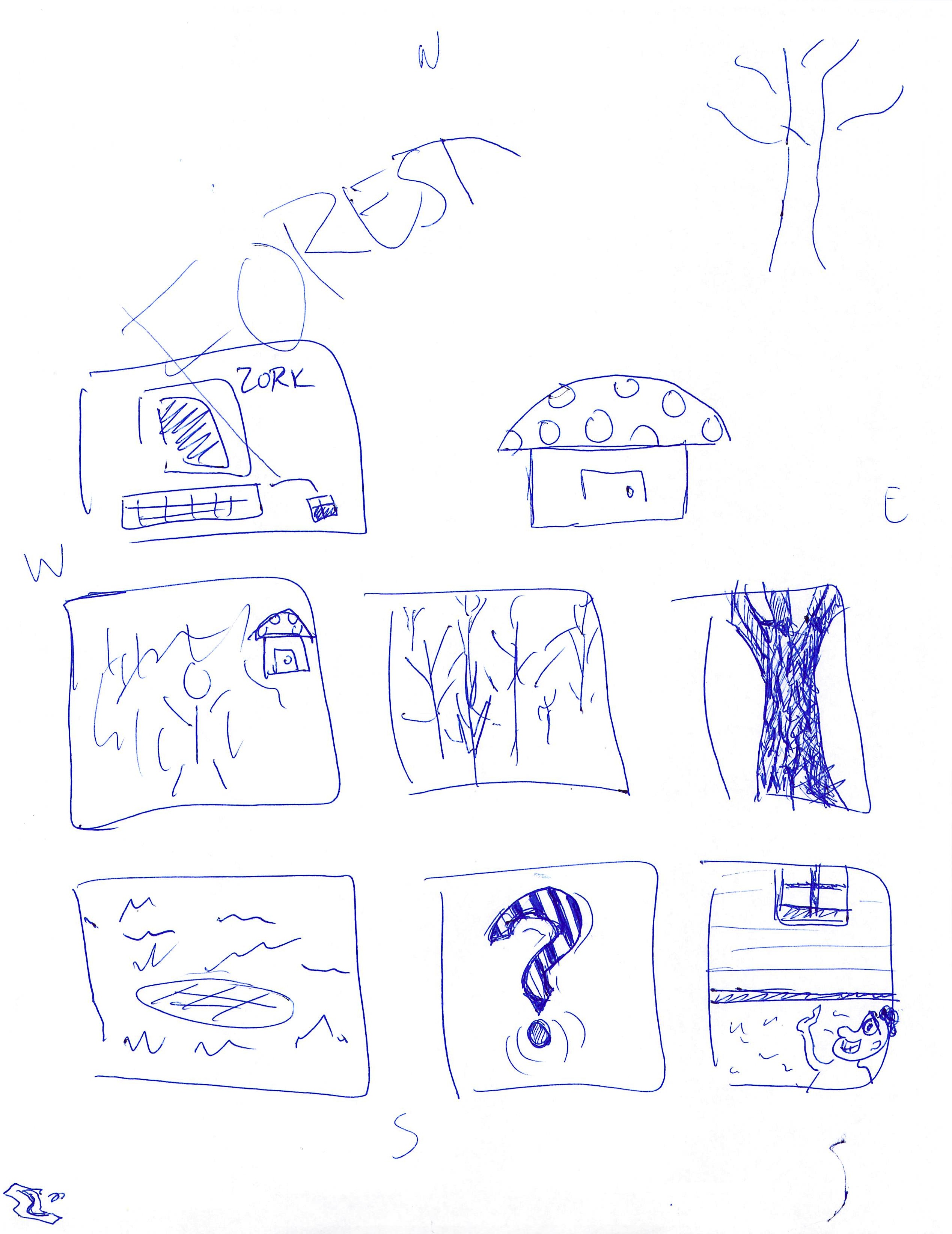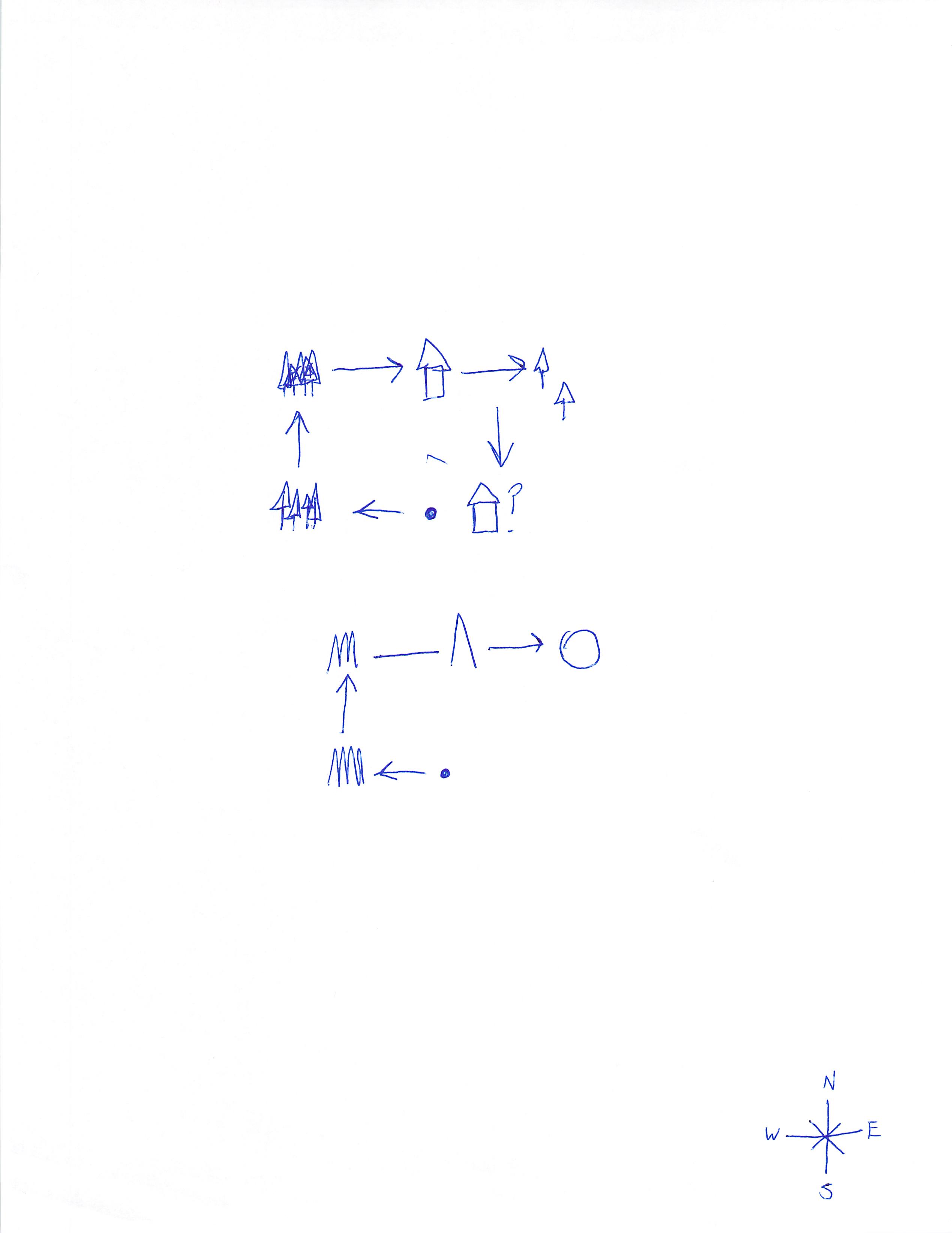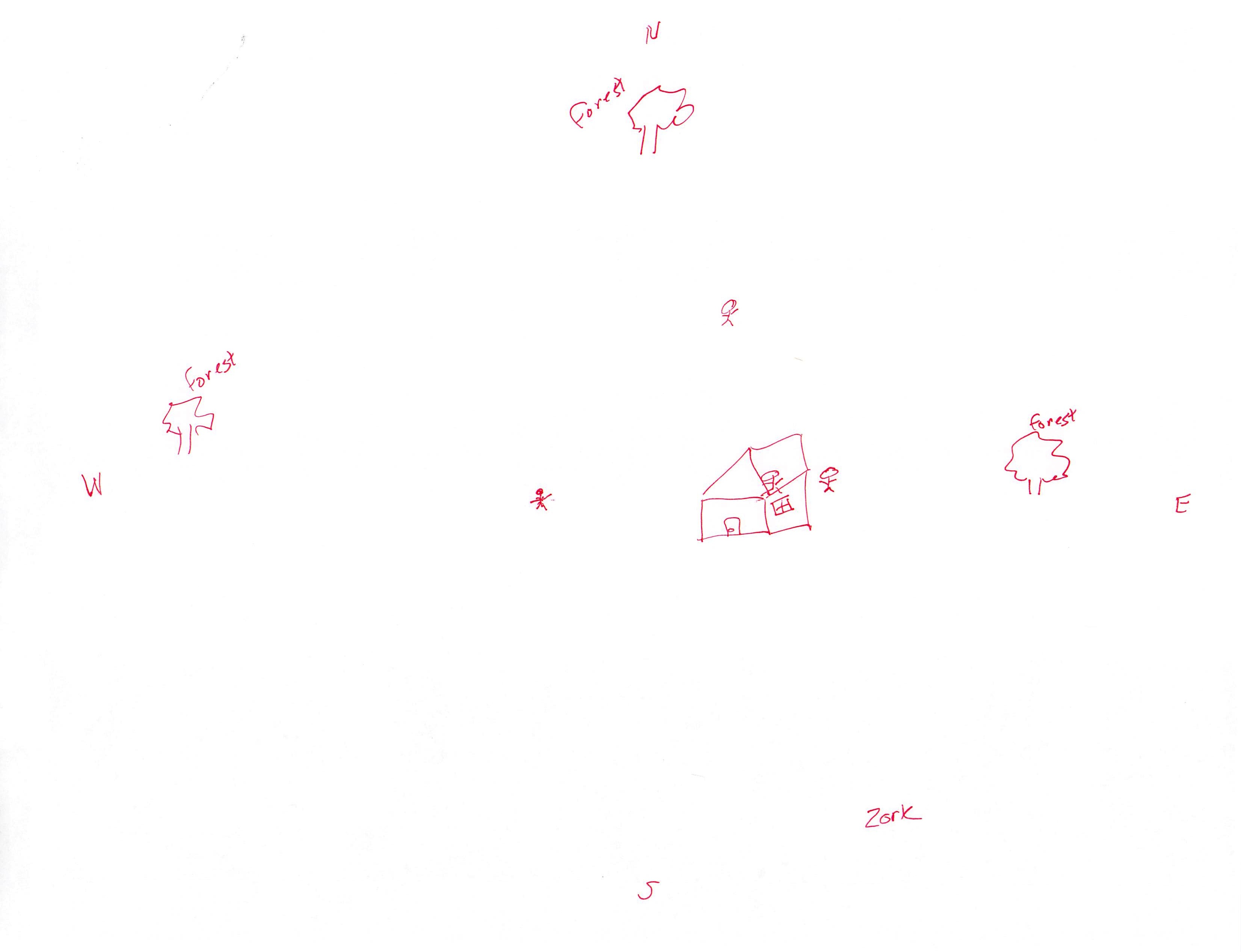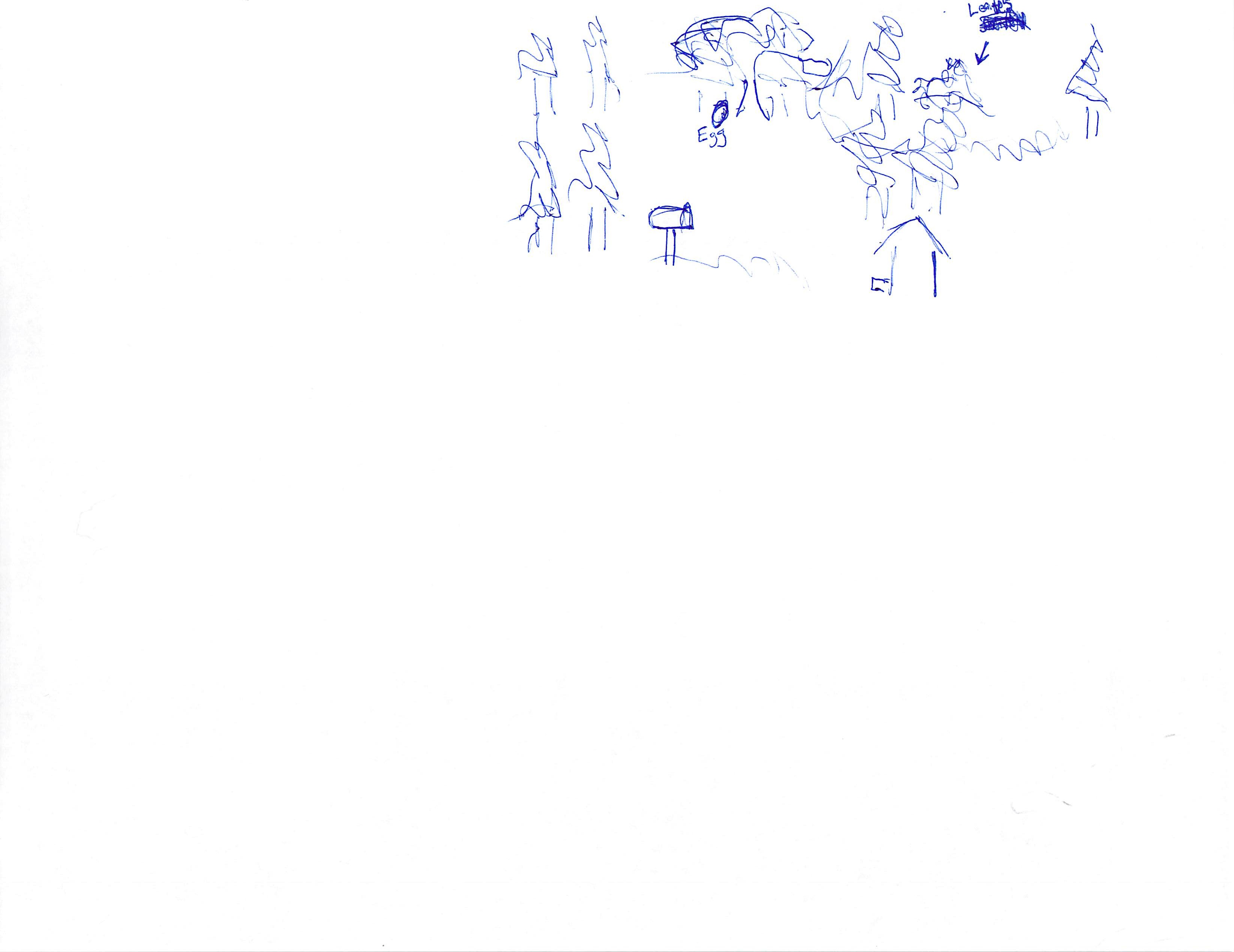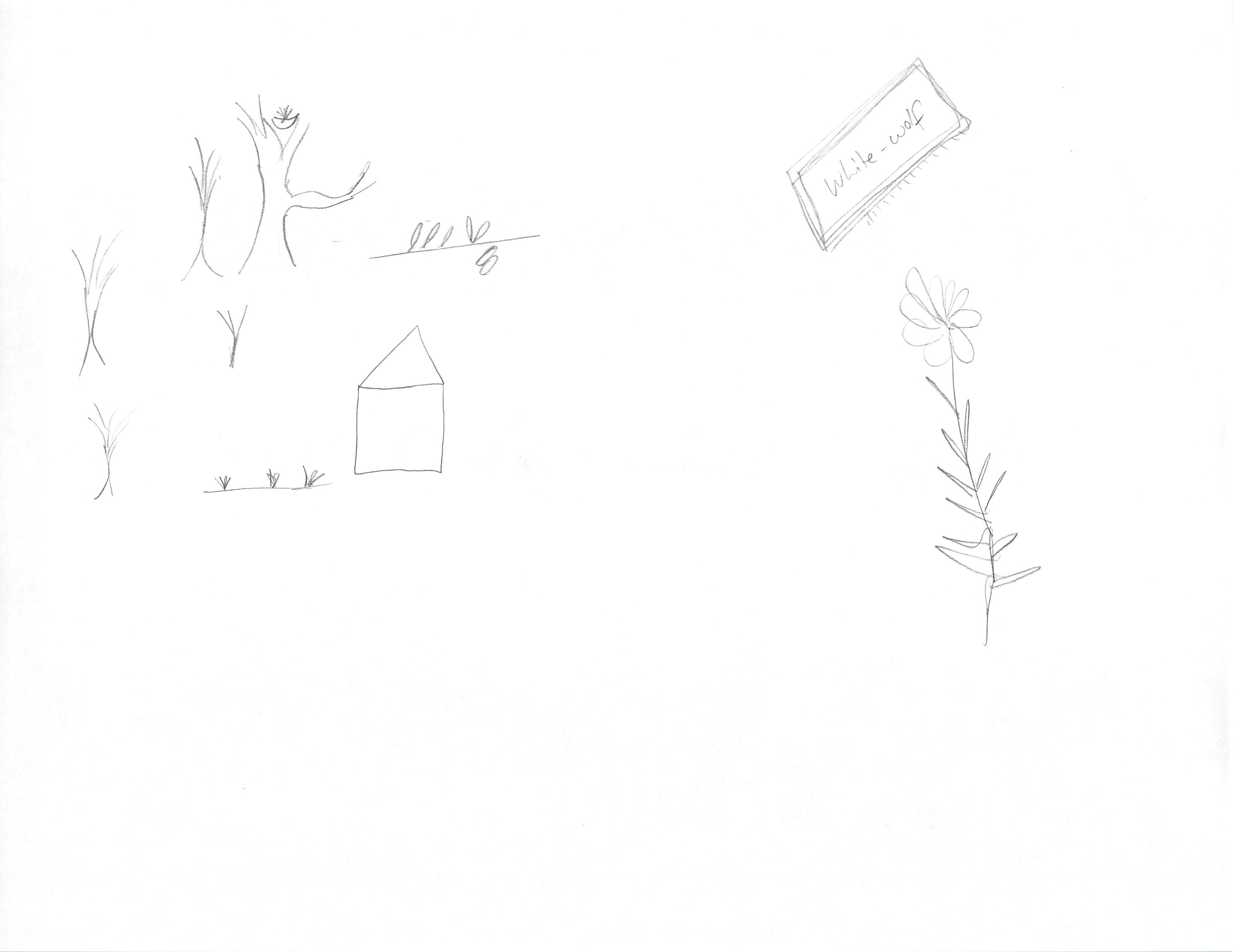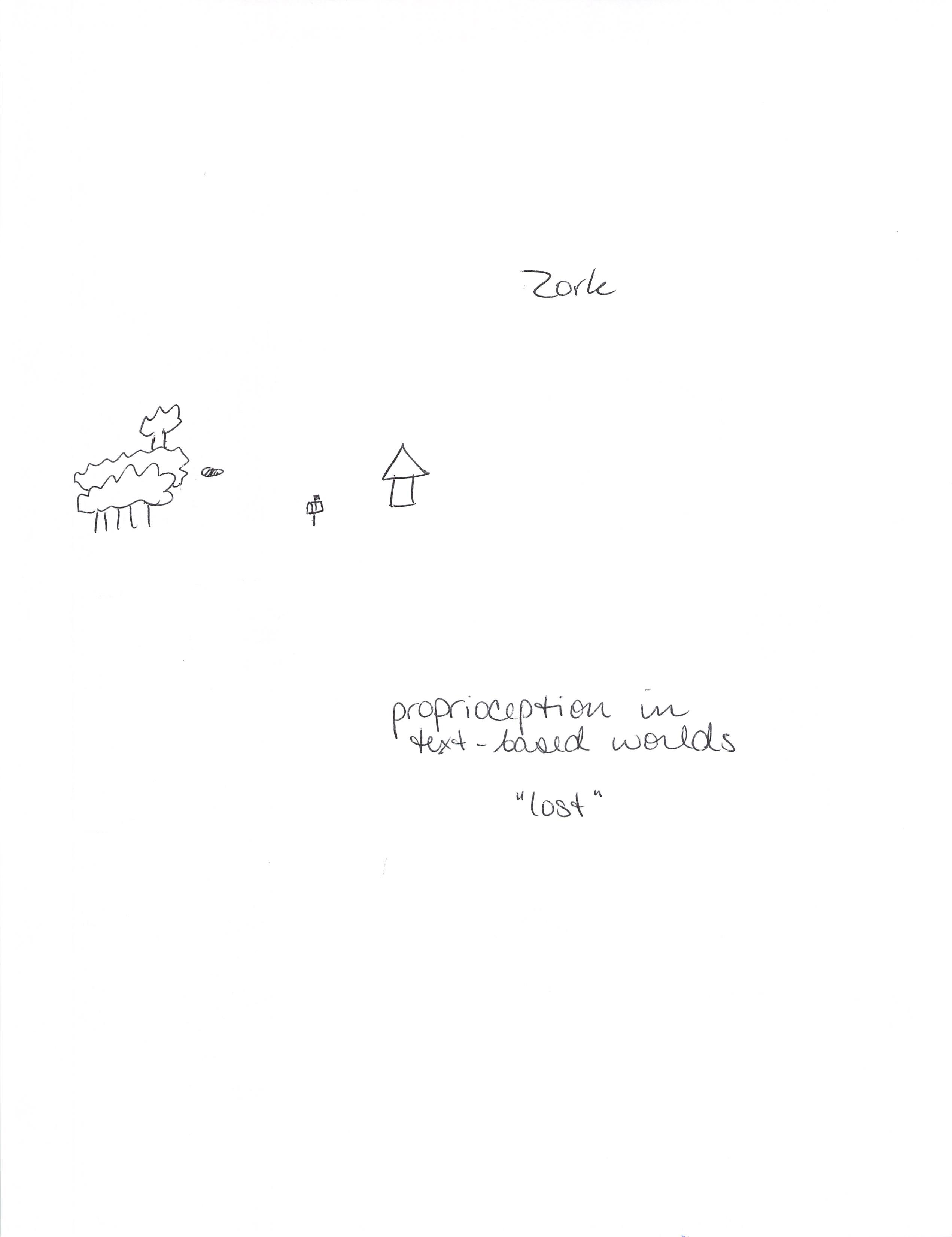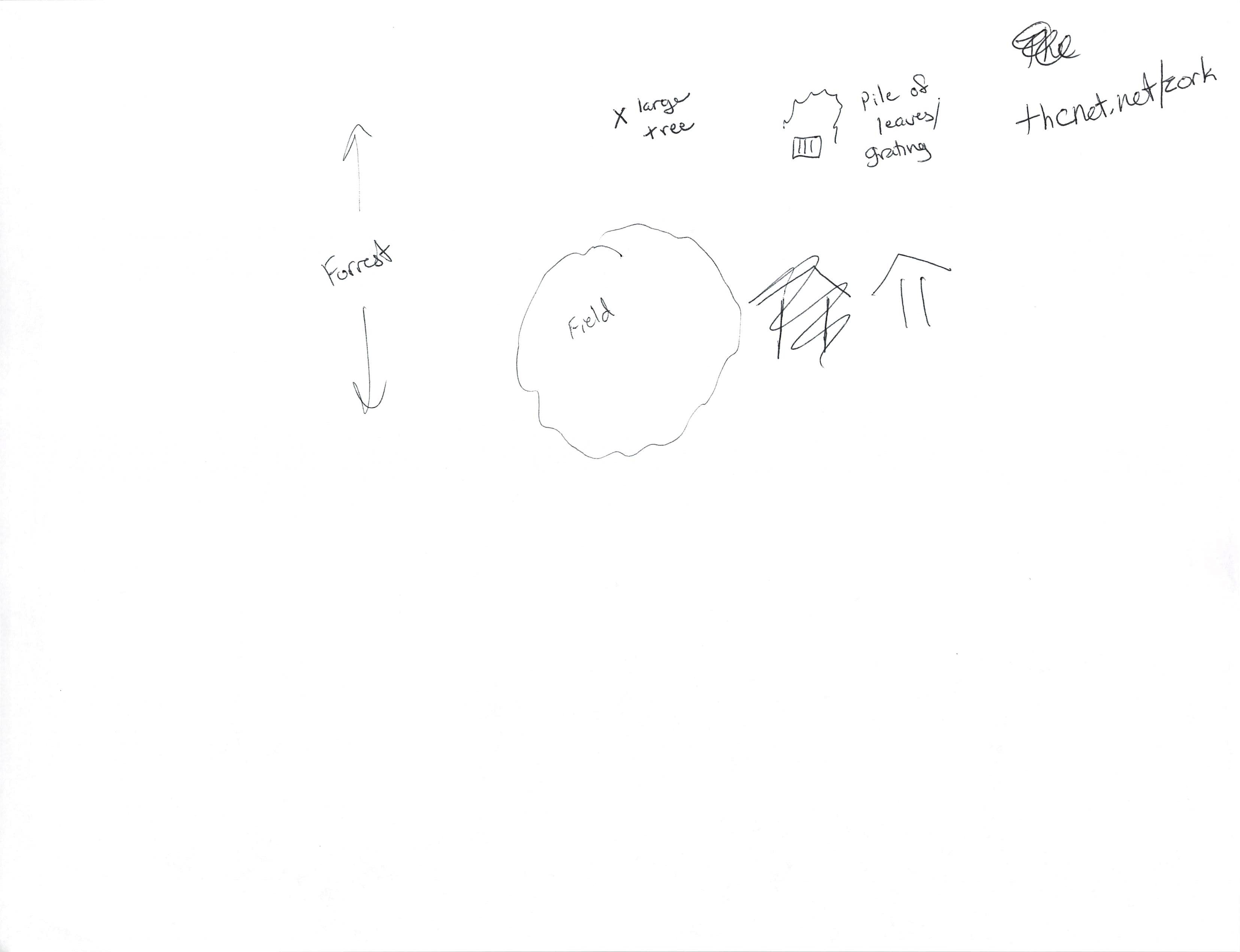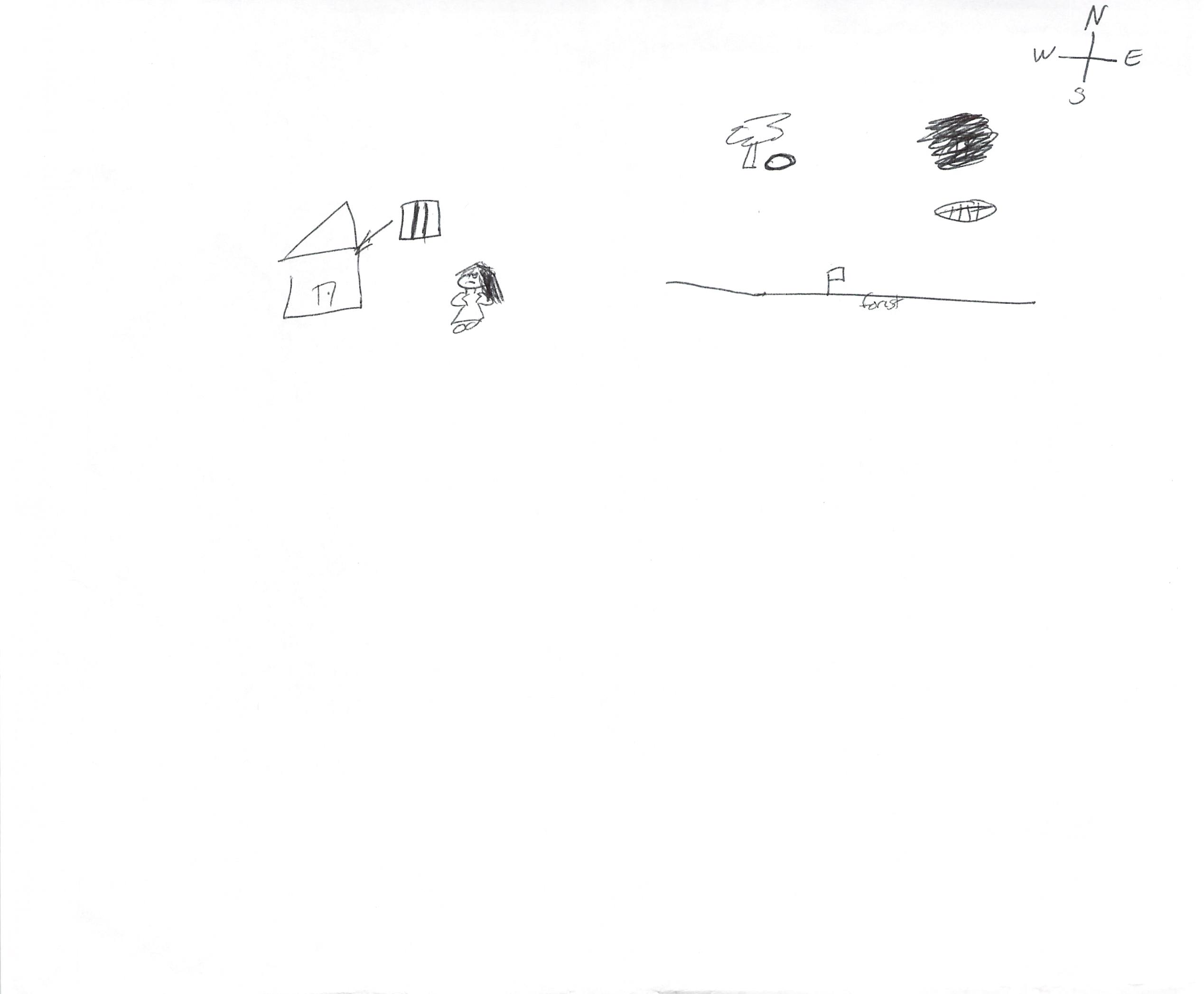Maps for Text-Based Game Worlds (Zork)
For my graduate seminar, we have been exploring the connection between maps, embodiment, and the production of space. As an experiment in proprioception, we decided to get our bearings playing Zork. We played two short sessions of 5 minutes each. The first time, we simply wandered and tried to get as far as we could. The second time, we started over, but I asked each student to draw a map to keep track of our position in the game world. We all experienced the feeling of getting lost in the space and, interestingly, the maps seemed to only highlight the feeling of being lost (e.g., “According to my map, we should be back at the house instead of here!”). The “cognitive maps” created while wandering offered a very different sense of proprioception than the maps which they drew as we played. Here are the maps below (for only the very first potion of the game):
